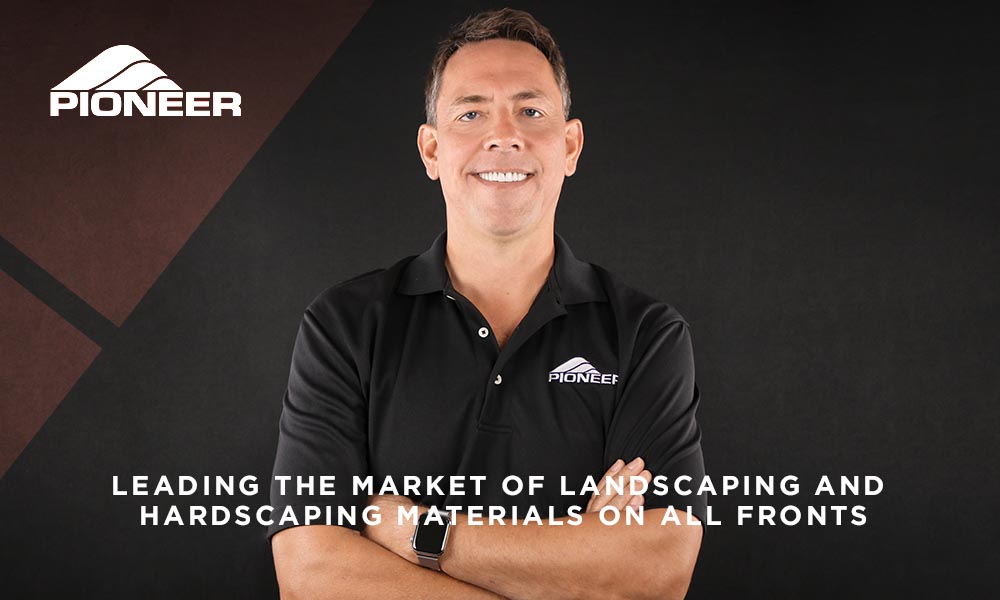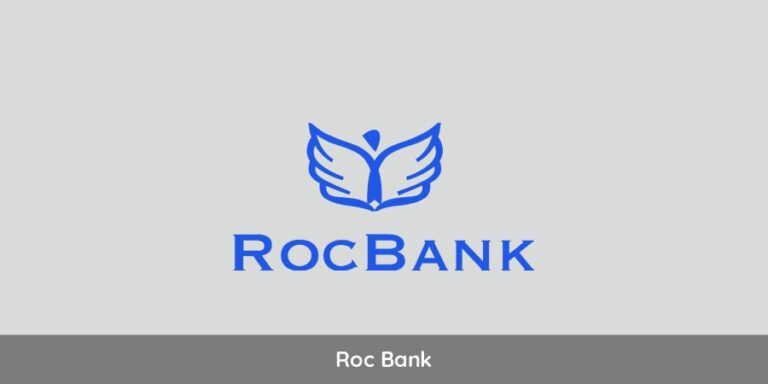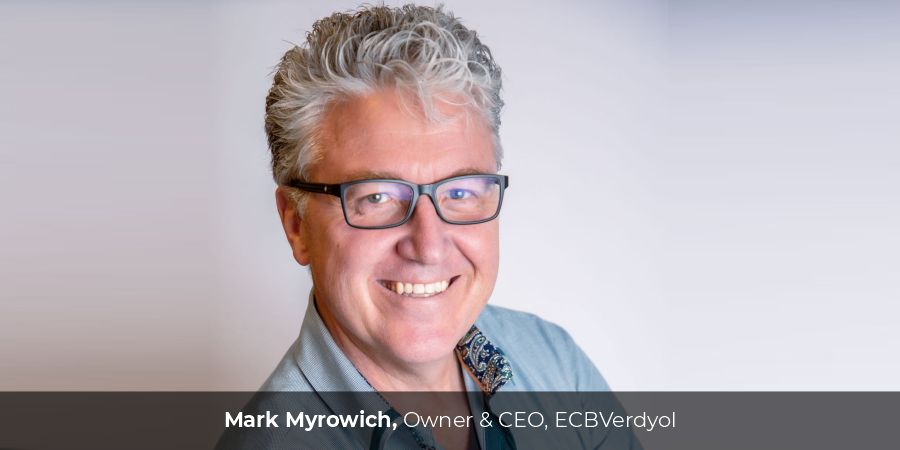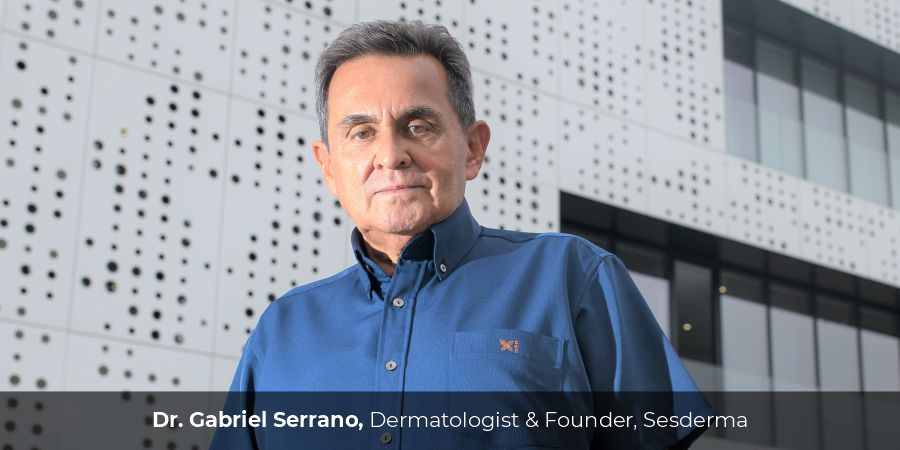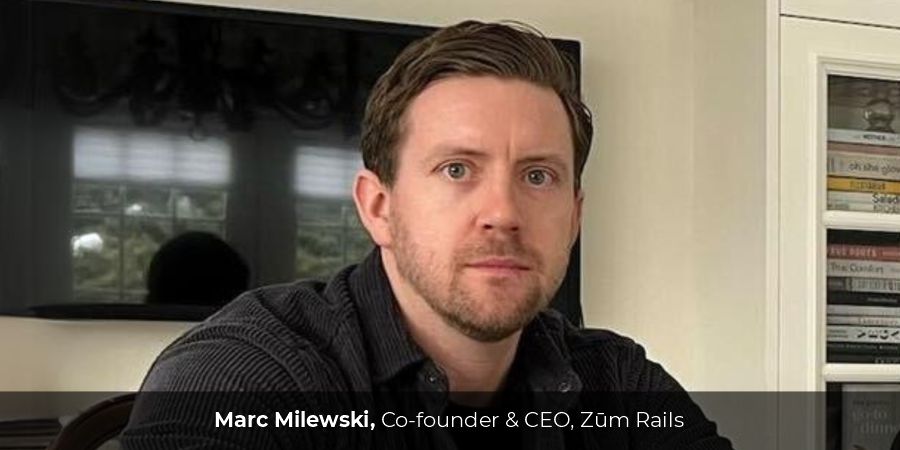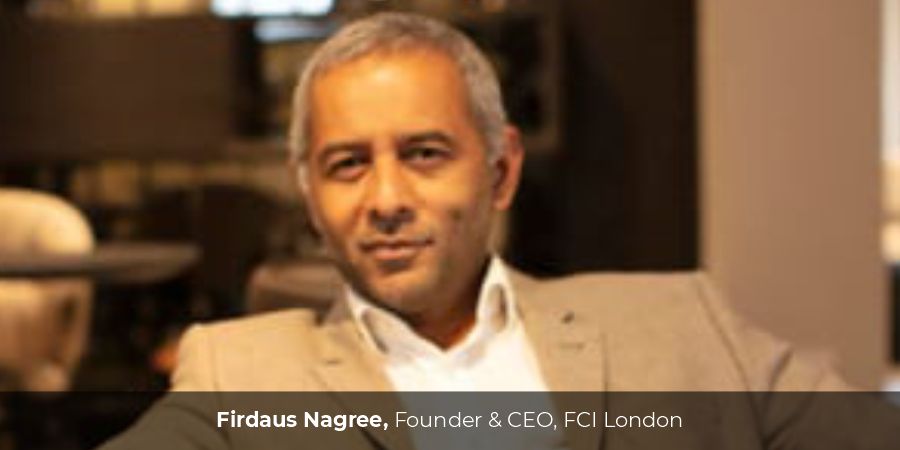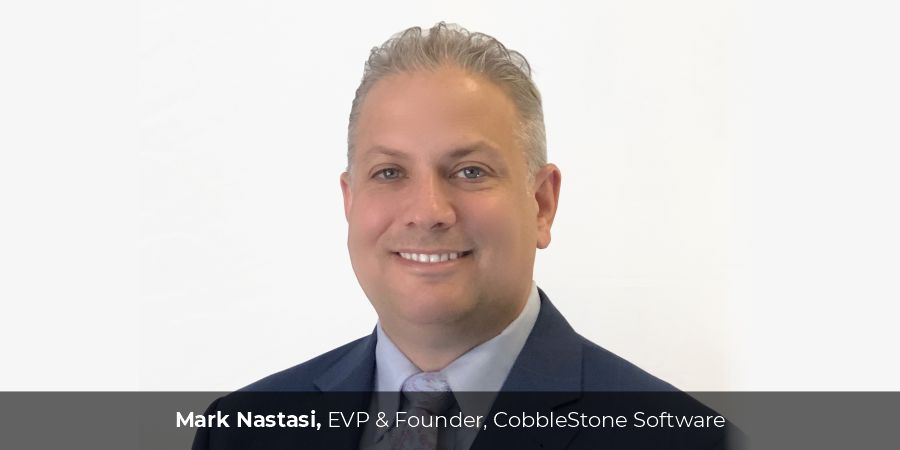Website: https://www.pioneerco.com/
Pioneer, under the leadership of Mark Adamson, has been serving residential, commercial, and industrial customers in the western U.S. since 1968. The Chief’s Digest is honored to have the chance to interact with Mark and understand what truly brings out the ‘Pioneer Difference’ in serving their customers.
Here’s his story and the insights he shared.
Alignment, not Divestiture
I once had a boss that used to say, “You don’t need to own the cow to get the milk”. What he meant was that as a distributor you don’t need to own the source of supply to offer great service to customers. I knew what he meant, but I really like ‘cows’. The source of production, in Pioneer’s case, the quarries were always positioned as an important part of the Pioneer story.
That is true and always will be. Pioneer’s origins were as a trucking and mining business that expanded into distribution. We are proud of that heritage and our knowledge of mining will set us aside from other distributors going forward. However, what makes most businesses successful is a relentless focus on being great at a small number of things. It was this realization that led to our decision to split Pioneer into two companies.
A house divided
I’ve run a lot of companies over the years. Some were single-business firms, some were conglomerates, and one thing I’ve seen again and again is that it’s really difficult to run businesses that are fundamentally different under one roof. It complicates staffing, core competencies, assets you need for operations, risk profiles, and more.
Yet, that’s what Pioneer was doing – running two very different businesses simultaneously. With the quarries, it’s a scarce-resources play. You’re making money because you own scarce resources, and you mine them efficiently. That job requires lots of equipment, so you’re pouring money into yellow iron, which is all that heavy construction equipment you need. On the plus side, you don’t need a lot of people, but the business also has a great risk for workers, so you do need to heavily invest in safety, something Pioneer has done in both its quarries and retail operations. Cultivating a safety culture has paid off for both sides of the business.
Still, the quarry business offered a very different return profile than the distribution side of Pioneer’s business. Retail stores can be summed up with one word: activity, activity, activity. There are lots of people on-site – both customers and staff. In the yard, you’ll find Pioneer employees helping customers select materials, and you’ll see heavy equipment moving that material into the customer’s trailer or truck. Pioneer retail stores make money with many smaller transactions every day. With quarries, you earn money via big transactions. These are two very different businesses, and we were trying to run both of those models under one banner, which is Pioneer.
Look at PepsiCo, the largest food and beverage company by net revenue in the North American market. It sells snack foods and drinks, as well as cereal with the 2001 acquisition of Quaker Oats Company. All of these products are similar – distribution is similar, production is similar, materials sourcing is similar – it’s one category of product: things people ingest. The entire company serves the food and beverage industry.
I liken what we’re doing at Pioneer to what the British chef Gordon Ramsey does when he goes into a struggling restaurant to help the owners flip the business back to profitability. One of the things he often points out at these failing restaurants is that they have far too much on the menu. The first thing he does is take the menu down to six starters, six entrees, and three desserts. That’s what we did in selling Pioneer’s quarry business. We reduced the menu.
After Ramsey cuts the menu, the restaurant owners still need to make those six starters, six entrees, and three desserts brilliantly every time. Fortunately, at Pioneer we’ve been working on that for the past several years.
Honing excellence
A big thing we’ve done to strengthen Pioneer and differentiate it from competitors is to focus on distribution. I mentioned earlier that contractors are our biggest customers. Their chief concern is knowing that materials will be at the store for them to pick up or be delivered to the job site when it’s needed and promised. That’s why we’ve heavily invested in logistics. Our customers don’t need to worry about having a crew of workers standing around waiting for mulch to be delivered so they can move it around to where it needs to go.
First, we bought back our own fleet. We’d previously outsourced it, but we realized that moving rock and mulch isn’t like delivering soda pop or other items the carrier we contracted with was taking from point A to point B. Our drivers aren’t backing up to a tidy dock where goods can be efficiently unloaded. Often, they’re traversing difficult terrain and dumping goods on a hill, which isn’t easy to do when you’re lifting the bed of the truck 25 feet in the air and could tip over the vehicle.
We wanted more control over how our drivers were trained. We also wanted more control over the availability of our trucks and drivers, something we couldn’t control with an outsourced vendor. Having our own fleet enables us to make sure that when we tell a customer they’ll have their purchase on a certain day and by a certain time, we can make good on that promise.
Along with investing in the fleet, we invested in the people who drive that fleet, running our own 200-hour curriculum designed to help new drivers get a commercial license. We invest in them, and it pays off in loyalty, which is important right now when there is still a driver shortage that’s plagued the industry for a couple of years now.
We also house our truck maintenance team in our own facilities. They do repairs as well as rigorous preventative maintenance on all our trucks and yellow iron at the stores, such as the forklifts and loaders.
Then there’s the technology we use to make sure we can offer on-time delivery of materials. We’ve invested heavily in a sophisticated, home-grown IT system that integrates our revised point-of-sale system with inventory control, the enterprise system, and the transportation management system so that Pioneer stores always have the inventory they need. On the distribution end, our program algorithmically calculates optimal routing and sends it to the driver’s onboard tablet. And we use Geotab, an app-based system that tracks driver location as well as asset condition.
Through Geotab, our dispatch system color codes each vehicle and its delivery commitments in the system used by our dispatchers. On-screen, they can look at the color of the vehicle and know if there’s a problem. Green means the vehicle’s location indicates on-time delivery is likely, yellow means a possible delay and red means the dispatcher might want to find another way to get the delivery to the customer or at least call the customer and work out a solution to the delay.
All of this technology helps us make sure our contractor customers won’t have crews waiting idly while the material is on its way to the job site. Getting crews is another problem our contractor customers face. In this year’s State of the Industry survey produced by Landscape Management magazine, 73 percent of survey respondents said a worker shortage had impacted their businesses. That’s one reason Pioneer has invested in blower trucks as part of our Contractor Services division.
Blower trucks transport and place materials such as mulch or dirt. Pioneer’s blower trucks can blow material up to 300 feet, so crews can park the truck on the street and run hoses to the areas needing coverage.
For our contractor customers, these trucks have several advantages. They’re fast, for one thing. A person pushing a 10-cubic-foot wheelbarrow could probably move about two square yards of material in an hour. A blower truck can move 60 yards. This means a small contractor can bid on larger jobs. The truck eliminates the guesswork of bidding on labor costs, too. The contractor knows what Pioneer will charge, and that won’t fluctuate the way labor expenses might. What’s more, Pioneer handles the clean-up after the work is done. With all these benefits, Pioneer’s blower trucks offer opportunities to our valued contractor customers.
Here’s another way we plan to better serve our valued customers. We’ve been wanting to expand the range of products we sell through our stores, and now we’ll have both the management time and the cash for that kind of investment.
At the moment, Pioneer is pretty much in the business of selling loose materials – sand, soil, rock, and mulch – and we have only a small portfolio of palletized products, such as pavers, landscape blocks, and other hardscape items that often make up the backbone of a manicured outdoor area. Adding these items will make Pioneer much more of a one-stop shop for the contractors who trust us to supply their materials. That will save these people time, and that will help them make money. They can be on the job site or drumming up business rather than driving around town, sourcing materials at different sites.
Meanwhile, the same quality of landscape materials our customers have been getting from Pioneer will continue to be what they get from us in the future. We’re selling the quarries, but we’re keeping the supply relationship intact.
The sale of our quarries strengthens Pioneer and, I hope, strengthens our relationship with our customers. After all, we’ve been investing in people, training, technology, and more for years to ensure that when we give a customer a delivery and service commitment, we keep our word.
Mark Adamson, Executive Chairman
Mark Adamson joined Pioneer as CEO in 2018 and is currently Executive Chairman. Prior to joining Pioneer, Mr. Adamson was the CEO of Fletcher Building, an $8 billion conglomerate of building products businesses based in Australia and New Zealand. Previously, he was with laminate company, Formica Corporation, where he ran their European division before assuming the role of CEO. Mr. Adamson also held roles in finance and management at GlaxoSmithKline and Deloitte. Mr. Adamson earned a BA (Hons) in Finance from North Umbria University in the UK and qualified as a Chartered Accountant with Deloitte.
“With production facilities in Colorado and Arizona, Pioneer operates 34 retail distribution centers and a fleet of over 250 trucks, making Pioneer uniquely positioned to serve commercial, wholesale, and residential customers.”



